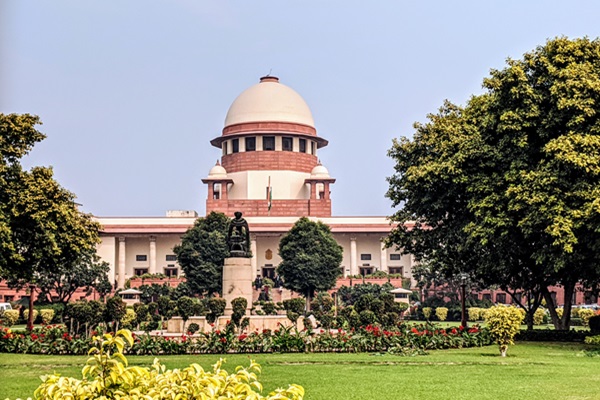.png)

Chandan K Jha
Chandan Jha is an Associate Professor of Finance at Le Moyne College. His work examines the causes and consequences of cultural norms and institutional quality on various socioeconomic outcomes.

Sudipta Sarangi
Sudipta Sarangi is a Professor and the Department Head of Economics at Virginia Tech. He has been a consultant to the World Bank and FAO, and is the author of Economics of Small Things .
October 4, 2025 at 7:56 AM IST
The amendment to the Bihar Land Registration Act in 2019—requiring that Jamabandi (mutation) in the seller or donor’s name be mandatory for executing a sale or gift deed—may appear a routine bureaucratic measure. But land in Bihar is not merely an economic asset; it is tied to dignity, survival and power. Weak property rights, rampant corruption, and endless disputes have shaped the lives of millions in the state. Against this backdrop, the Supreme Court’s ruling will decide more than the validity of a technical clause. It will test whether the law can protect those who are most easily dispossessed.
When the Patna High Court upheld the amendment in February 2024, it recognised the government’s attempt to curb fraudulent transfers and found it reasonable to demand proof of ownership. Opponents claim the rule will trap people without Jamabandi records, especially families forced to sell ancestral land in moments of crisis. That concern is not trivial. But the real question is whether the absence of documentation should continue to legitimise a system that thrives on confusion. The right approach is surely to equip rightful owners with the documents they deserve rather than perpetuating a legal void that benefits only the unscrupulous.
Currently, Bihar’s land system makes it shockingly easy for fraudsters to dispossess rightful owners. Anyone can sell land without adequate proof. The rightful owner of the land then has to navigate a lengthy civil court process to claim their own property. Moreover, once a registration document is created by one government entity, it becomes easier for the next government department, which is the Revenue Department, to create mutations in the name of the new registrant, with bribes greasing the transactions. The whole process is reminiscent of the movie Kaagaz, where Pankaj Tripathi has to prove that he is alive since he has been officially declared dead.
Though the law does classify fraudulent registration as a criminal offence, the police are seldom interested in registering an FIR, dismissing such cases as civil disputes. Knowing this, the so-called land mafia operates with near impunity. The consequences of weak property rights are stark. In Bihar, land disputes are the single biggest trigger for murders. By issuing registration certificates without even checking ownership, the state itself fuels conflict.
According to the Bihar Department of Agriculture, 76% of the state’s population is engaged in agriculture, which makes land security central to survival. If farmers cannot trust that their land is truly theirs, they will not invest in it. Economists have long shown that prosperity depends less on natural wealth than on the strength of institutions. It was this very argument—linking growth to property rights and the rule of law—that earned Daron Acemoglu, Simon Johnson and James Robinson the Nobel Prize in 2024. Without such foundations, uncertainty chokes development and reduces incentives for productivity.
Legal Gridlock
For the poor farmer fighting the land mafia, the maxim “justice delayed is justice denied” is not a rhetorical flourish but a lived reality.
Crime and Punishment
This dynamic is amplified by corruption. A 2019 Transparency International survey found Bihar’s police and land registration departments among the most corrupt, with 75% of respondents admitting to having paid bribes. Weak enforcement plus corruption means that for many, crime is not risky but rational.
It is from this perspective—the presence of weak institutions and corrupt government machinery—that the proposed amendment to the Bihar Registration Act is significant. In fact, the government can address land disputes in two ways. First, by strengthening the institutions, which is at best a gradual change that also requires a lot of resources. Second, by enacting transparent and clear laws, leaving less room for discretion or manipulation. By making ownership documents mandatory, the amendment follows the second path.
Such measures do not solve Bihar’s institutional rot, but they create friction against fraud and reduce avenues for corruption. The Supreme Court should endorse it not as a bureaucratic tweak, but as a necessary safeguard for justice, order, and economic growth in one of India’s most vulnerable states.




